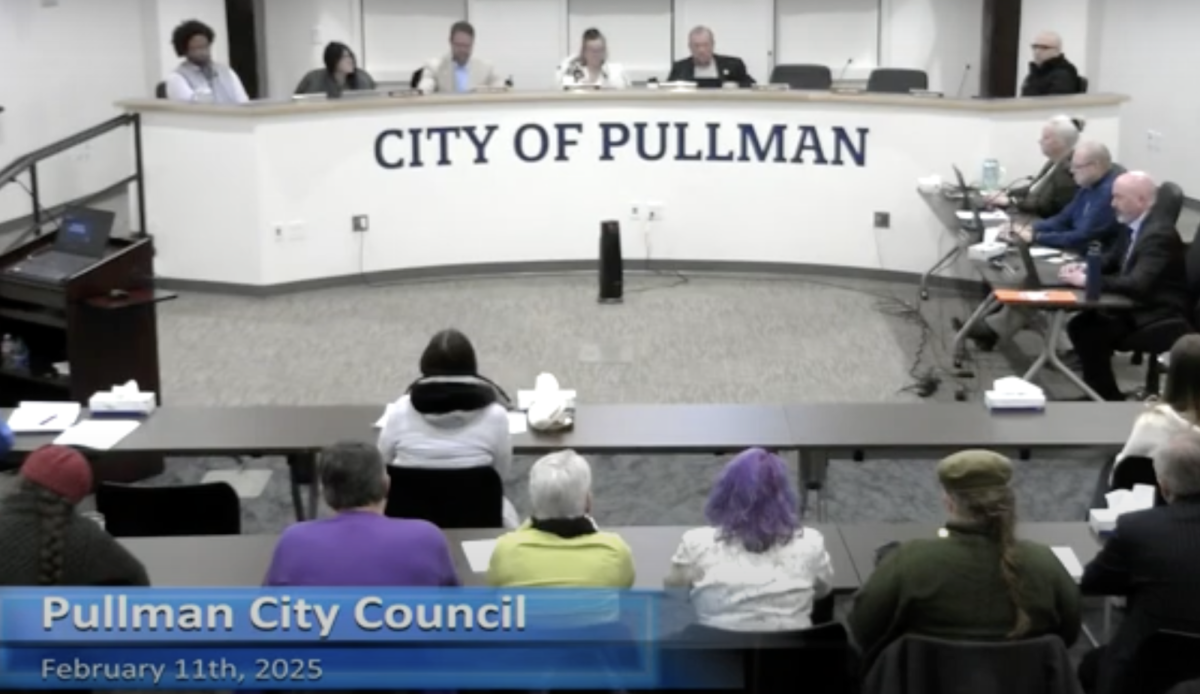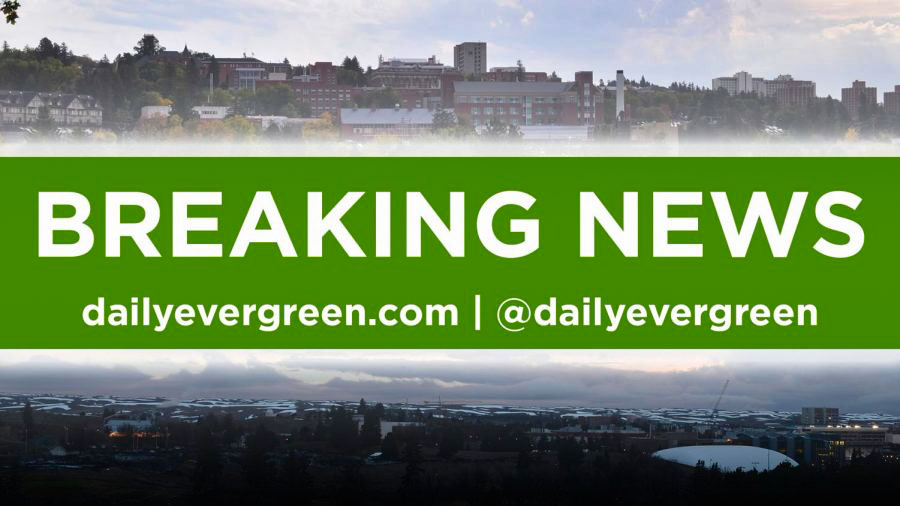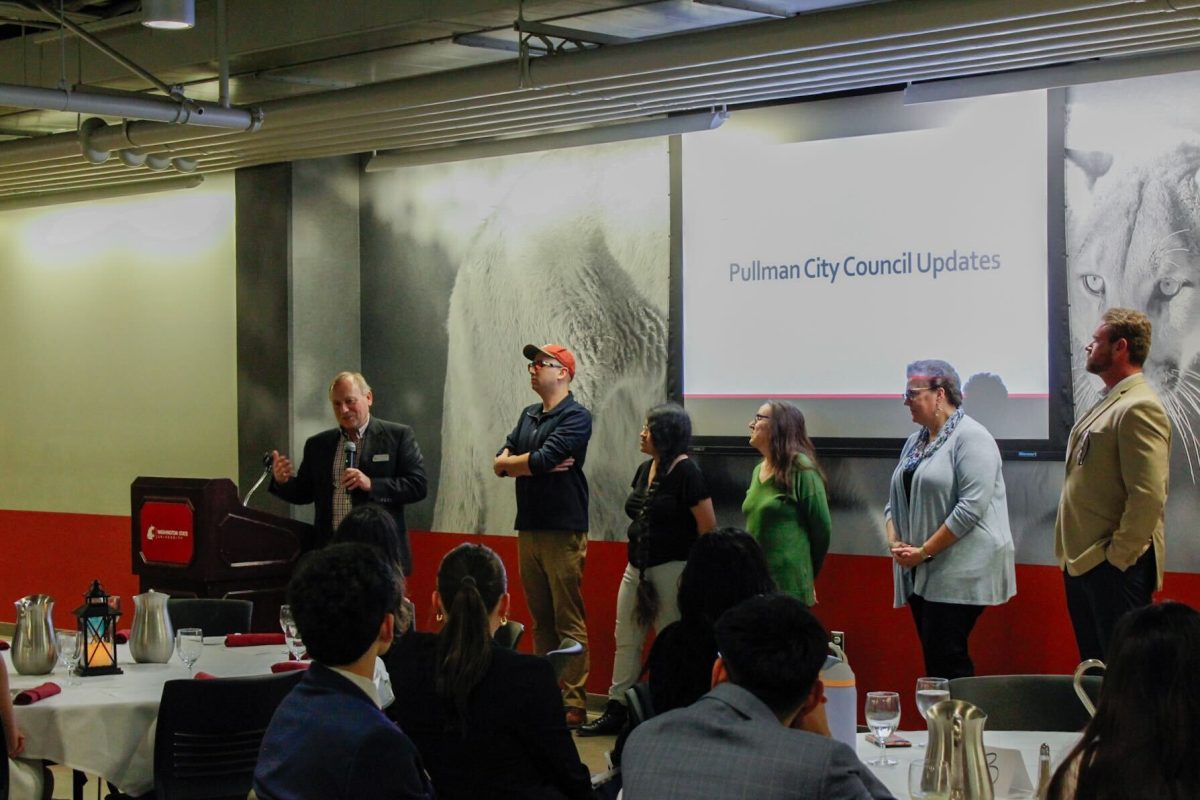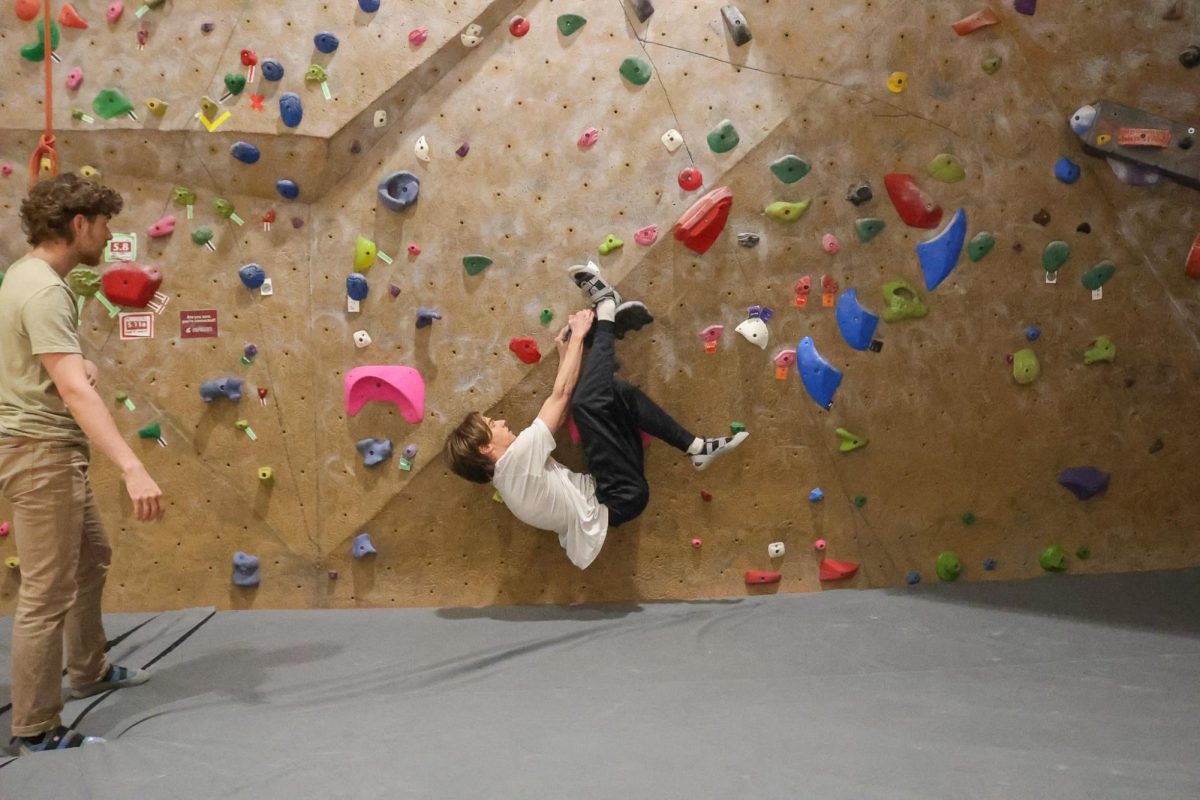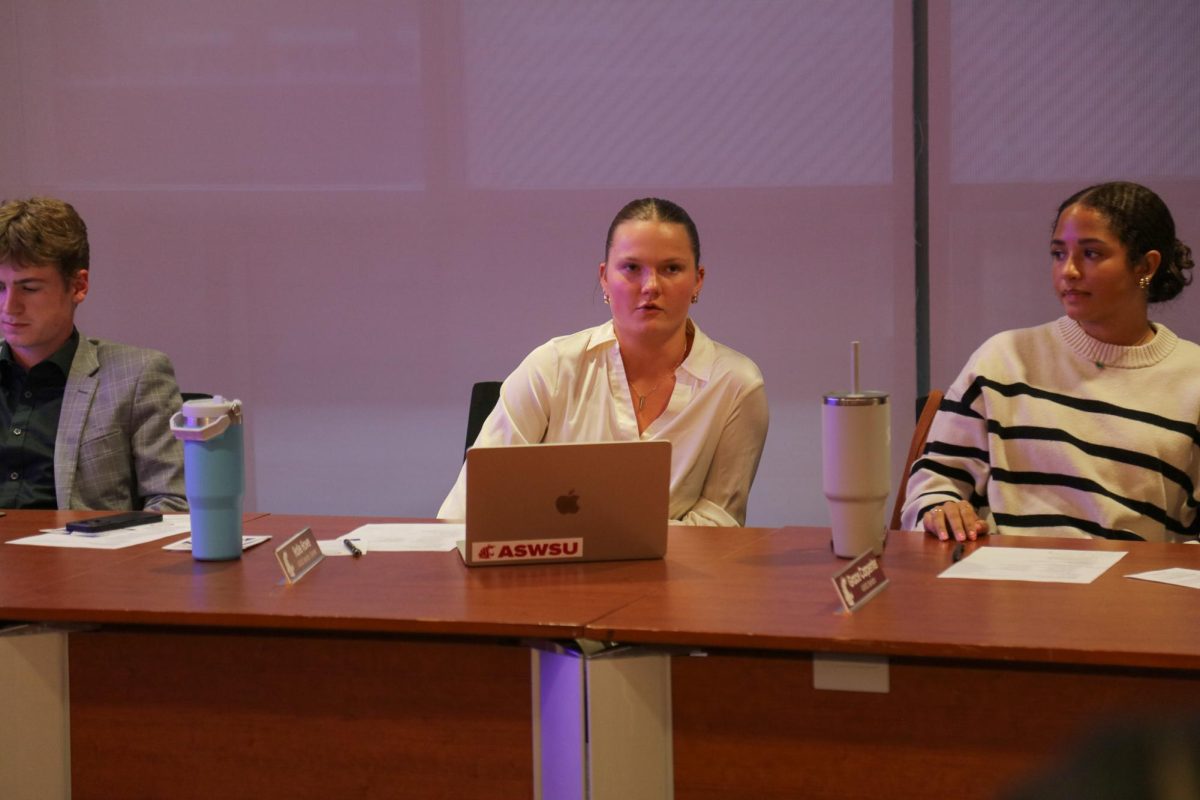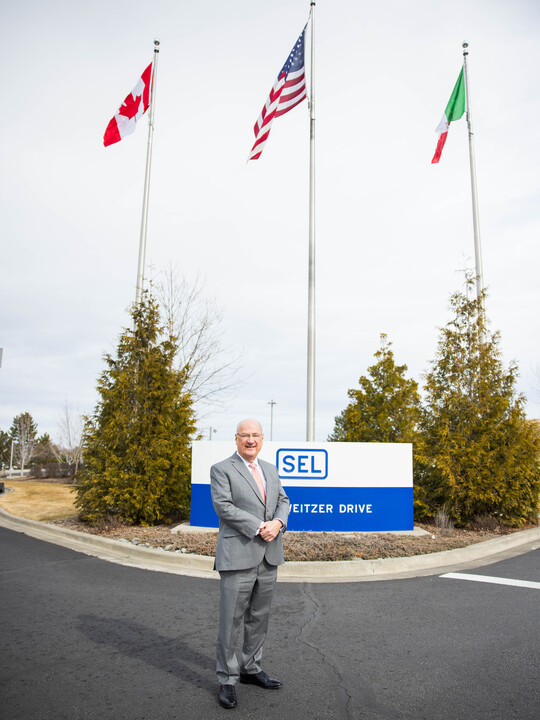Pullman’s city council discussed a city ordinance concerning right-of-way use at their meeting Feb. 11.
The Council heard the proposal for ordinance 25-02, an ordinance designed to establish a new right-of-way code. 25-02 was proposed to correct issues identified in existing Pullman city code 11.28 concerning obstructions to streets and sidewalks, said Sean Wells, Pullman city public works director.
Well said public works staff identified issues in 11.28, including the vague nature of the initial code, a lack of appeal process and inconsistent violations and penalties.
“We compared this code versus other sections of the city code; there was no ability to revoke any permit that was given for any non-compliance. There were no established standards and the code doesn’t say what could be used what couldn’t be used,” Wells said. “There were conflicts with the of code … it was very vague … it talked about other things that obstruct, disturb or interfere with the free use and safe enjoyment by the public of any street, alley, highway, sidewalk or public place.”
Proposed ordinance 25-02 sought to clarify right-of-way use, including the classifications of permits, establishes permanent fee types and allows for an administrative appeals process, Wells said.
City Council could choose to adopt the ordinance as written, adopt it with amendments, or do nothing, effectively keeping city code 11.28 as is. The initial ordinance as written failed unanimously.
Councilmember Eric Fejeran then presented a motion to adopt ordinance number 250- 2 with a proposed amendment to strike 11.28.18 concerning the renewal of permits. Fejeran’s motion also requests staff consider a renewal process and bring the amended process to the city council by the end of the second quarter.
The following presentation, also delivered by Wells, focused on the secondary aspect of fixing 11.28.
The presentation recommended the adoption of fee resolution R-06-25, which concerns the fees and financial administration behind Pullman right-of-way regulations. Concerning the financial aspect of 11.28.18, public works of Pullman found the code to be outdated, having been written in 1971 and not changed since.
The goals of the proposed fee resolution include establishing a fee structure that is easily calculable and keeps the “price” as low as possible but avoids lowering the cost to the point where benefits are provided to private parties, which violates the Washington Constitution’s “gift of public funds” doctrine, according to Well’s presentation.
“We want to, on one hand, minimize financial burdens on businesses, but we have to keep in mind that fees must still reflect some measure of cost recovery for staff time. To avoid constitutional issues we cannot reduce fees to near zero, which could be legally problematic,” Councilmember Trymaine Gaither said.
The proposed fee resolution included fee amounts correlating to the categories of right-of-way use determined by the prior ordinance motion.
Pullman City Council opted to entertain a motion to accept the ordinance fee resolution with a modification to the requirement of liability insurance. The limited liability insurance requirement threshold for buildings and auto in relation to businesses was set at $1 million.
The motion, presented by Councilmember Pat Wright, passed 5-1.


